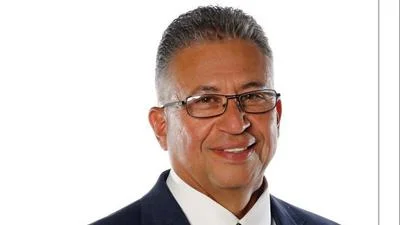Neither Sen. Martin Heinrich nor Sen. Ben Ray Lujan, both Democrats from New Mexico, had any comment for the New Mexico Sun when asked if they planned to call for the Biden Administration to investigate the circumstances which led to the U.S. military targeting innocent civilians during last month’s drone strike in Kabul.
Chairman of the Joint Chiefs of Staff Mark Milley first indicated in a release that the Aug. 29 drone strike was in response to an “imminent threat;” however, the Pentagon recently admitted that bombing, in the wake of frenzied withdrawal from Afghanistan, was a “horrible mistake” that killed 10 innocent Afghans, including as many as seven children.
Last week, Secretary of Defense Lloyd Austin acknowledged what the New York Times and other media outlets had already reported: The drone stroke killed an Afghan U.S. aid worker and several nearby children — not an ISIS affiliate.
Austin released a statement that said they originally believed the target of the strike was a dangerous threat to U.S. service members and others at Hamid Karzai Airport, but that “we now know that there was no connection between Mr. (Zemari) Ahmadi and ISIS-Khorasan.”
The Pentagon and several other sources have reported that Ahmadi, the driver of the vehicle targeted, was an employee of an American established aid organization Nutrition and Education International, not a menace to U.S. forces.
The U.S. Central Command (CENTCOM) issued two statements on the day of the strike which stated that the U.S. had executed a “self-defense unmanned over-the-horizon airstrike” against an automobile in Kabul which posed an “imminent ISIS-K threat.” The release also described "powerful subsequent explosions resulting from the destruction of the vehicle, indicating a large amount of explosive material inside."
After intel revealed that the drone strike had taken the lives of several civilians, CENTCOM told the public they were “aware of reports of civilian casualties” and were “still assessing the results of this strike, which we know disrupted an imminent ISIS-K threat to the airport.”
Three days after the strike, Milley remained steadfast on the reasons behind the strike in a release.
“We know from a variety of other means that at least one of those people that were killed was an ISIS facilitator,” he said at a press briefing. “At this point, we think that the procedures were correctly followed and it was a righteous strike.”
Last month, President Biden said that the strike in question was a prime example of his “over-the-horizon” counterterrorism strategy. In his statements on withdrawing from Afghanistan from the State Dining Room, Biden claimed that the U.S. had “struck ISIS-K remotely, days after they murdered 13 of our service members and dozens of innocent Afghans.”
Following the country's swift departure from Afghanistan, Axios reported that counterterrorism experts are questioning the worth of Biden’s “over-the-horizon” strategy, with one member of the intelligence community calling it the “over-the-rainbow” strategy.









